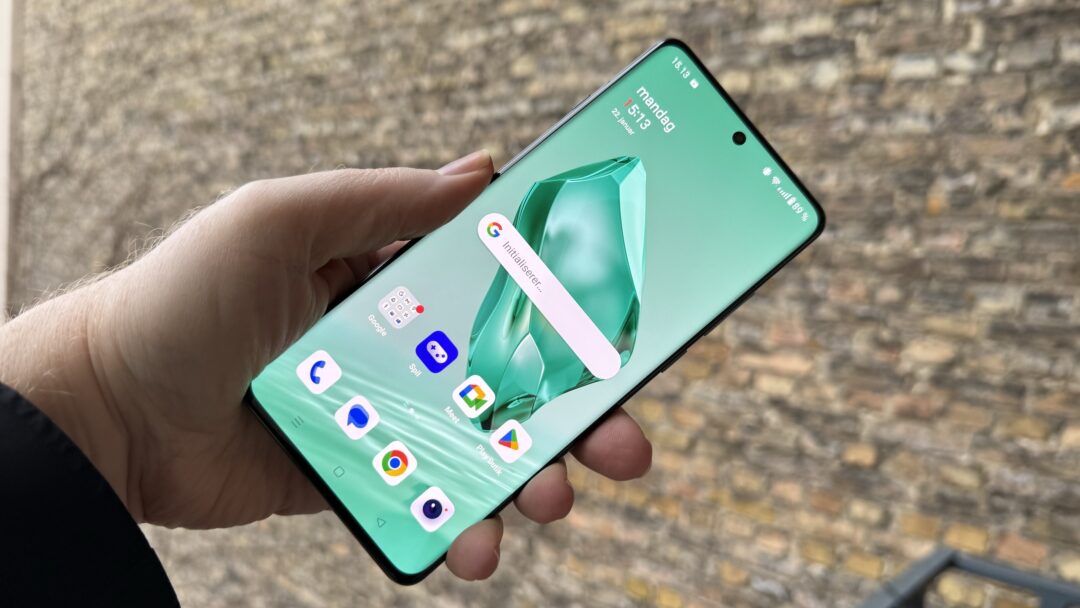Last year, OnePlus decided not to launch a Pro edition of their OnePlus 11 model, instead opting to turn the standard version of their latest smartphone into a true top-of-the-range model.
It’s fair to say that they succeeded beyond all expectations, as consumers really got their money’s worth in the form of a relatively affordable smartphone with great performance, great screen, great camera, solid battery life and lightning-fast charging. Only the lack of wireless charging detracted from the overall rating.
So, of course, it makes sense for OnePlus to repeat the success, and that’s the plan with the OnePlus 12, which has only now been launched internationally, but was actually launched in China in early December last year to mark the Chinese mobile manufacturer’s 10th anniversary.
However, one thing is different this year. For the first time, OnePlus has also launched the so-called R model, the OnePlus 12R, on the European market. This is a slightly downgraded version of the top model at a lower price, but with a focus on performance. In fact, it is very similar to the OnePlus 10T model that we tested back in 2022. We will bring you a test of the OnePlus 12R in early February.
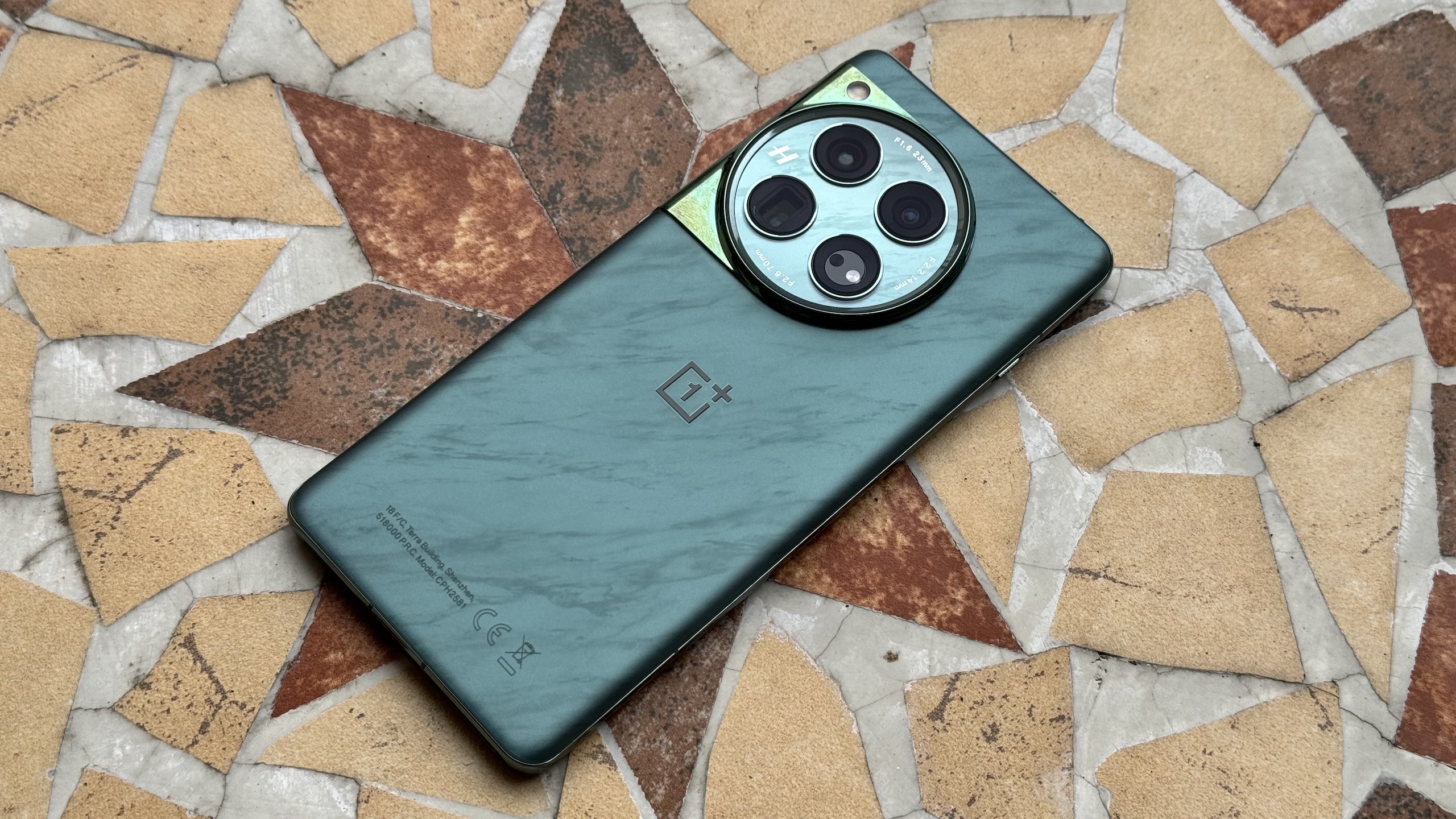
But here we’re looking at the OnePlus 12, which in every conceivable way is a logical upgrade from last year’s model. Essentially the same mobile phone with the same concept, but with better specs here and there to draw new and old customers into the store.
Design and construction
Apart from the OnePlus 12 being slightly bigger and heavier than the OnePlus 11, the new smartphone looks just like its predecessor!
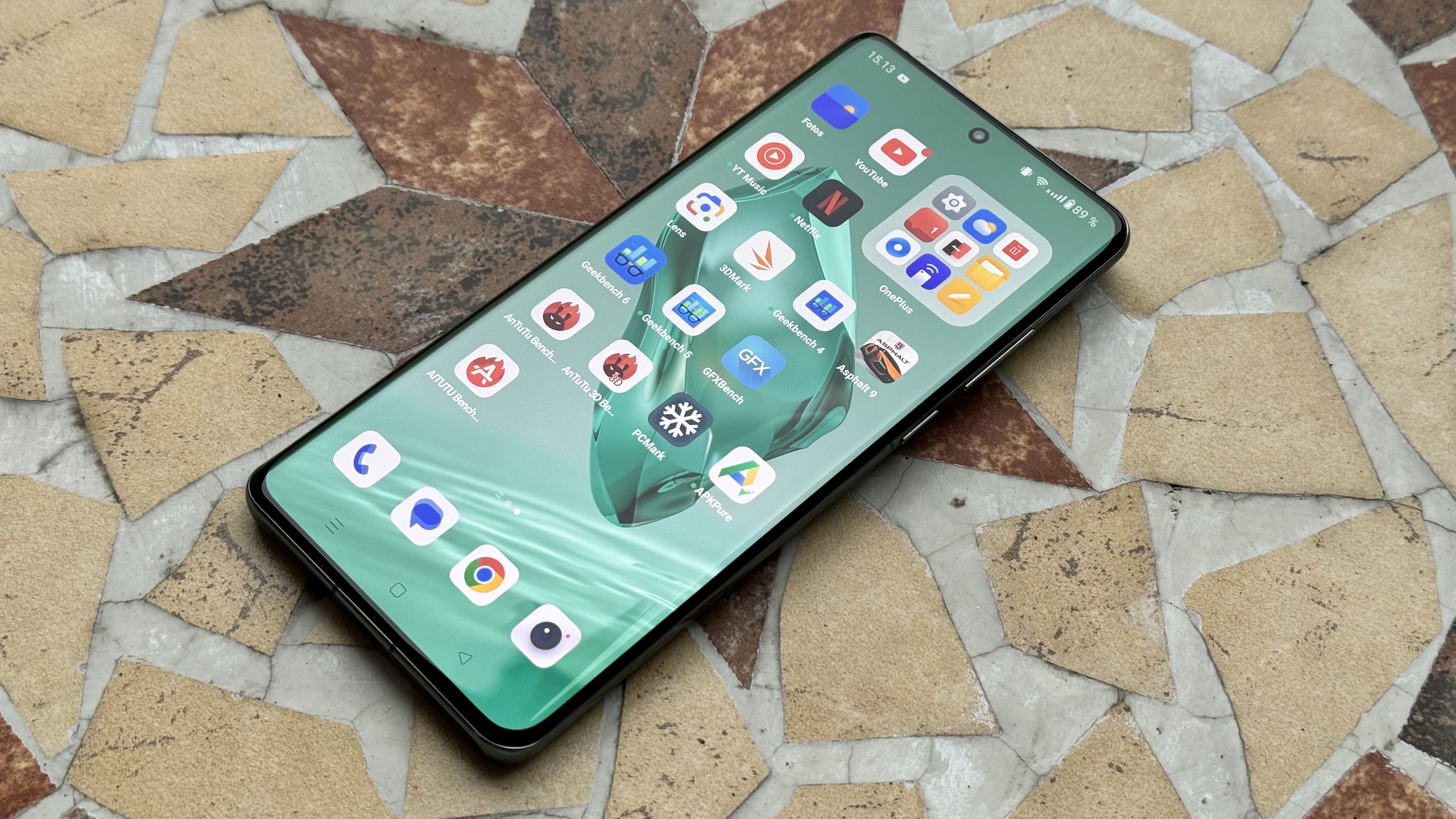
On the back is a round camera module that almost blends in with the aluminium frame of the phone.
On the right is the power button and the volume control button, while the small slider that switches between sound, vibration and silent mode is on the opposite side.
The back of the phone is protected by Gorilla Glass 5, while the screen is made of Gorilla Glass Victus 2.
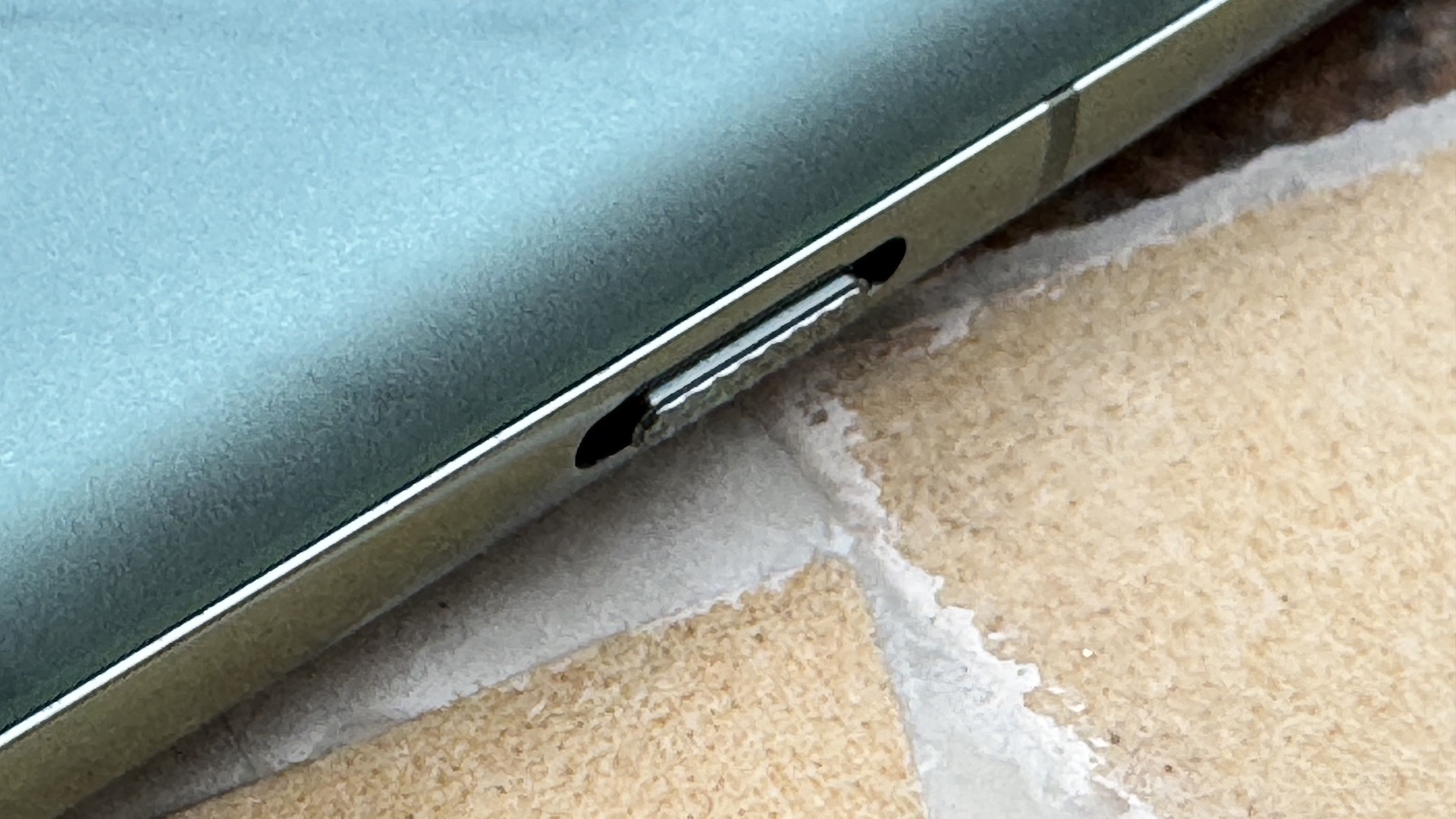
Our test sample had a matte green colour tone (called Flowy Emerald by OnePlus) that, while inspired by rivers criss-crossing a mountainous landscape in the Southern Alps, looks more like green marble. I guess it’s a matter of taste whether you find the colour elegant or cheesy. Fortunately, the phone is also available in a subtle matte black, and regardless of colour, the OnePlus 12 offers high build quality and feels sturdy in the hands.
In terms of IP certification, the OnePlus 12 offers a slight improvement over the OnePlus 11, which was IP64 certified. The new model is IP65-certified, which in practice means that the new mobile phone is completely dust-proof, while also being protected against heavy water splashes from all directions.
Screen and sound
The fact that the OnePlus 12 is slightly larger than its predecessor also applies to the screen, which now measures 6.82 inches (compared to 6.7 inches on last year’s model).
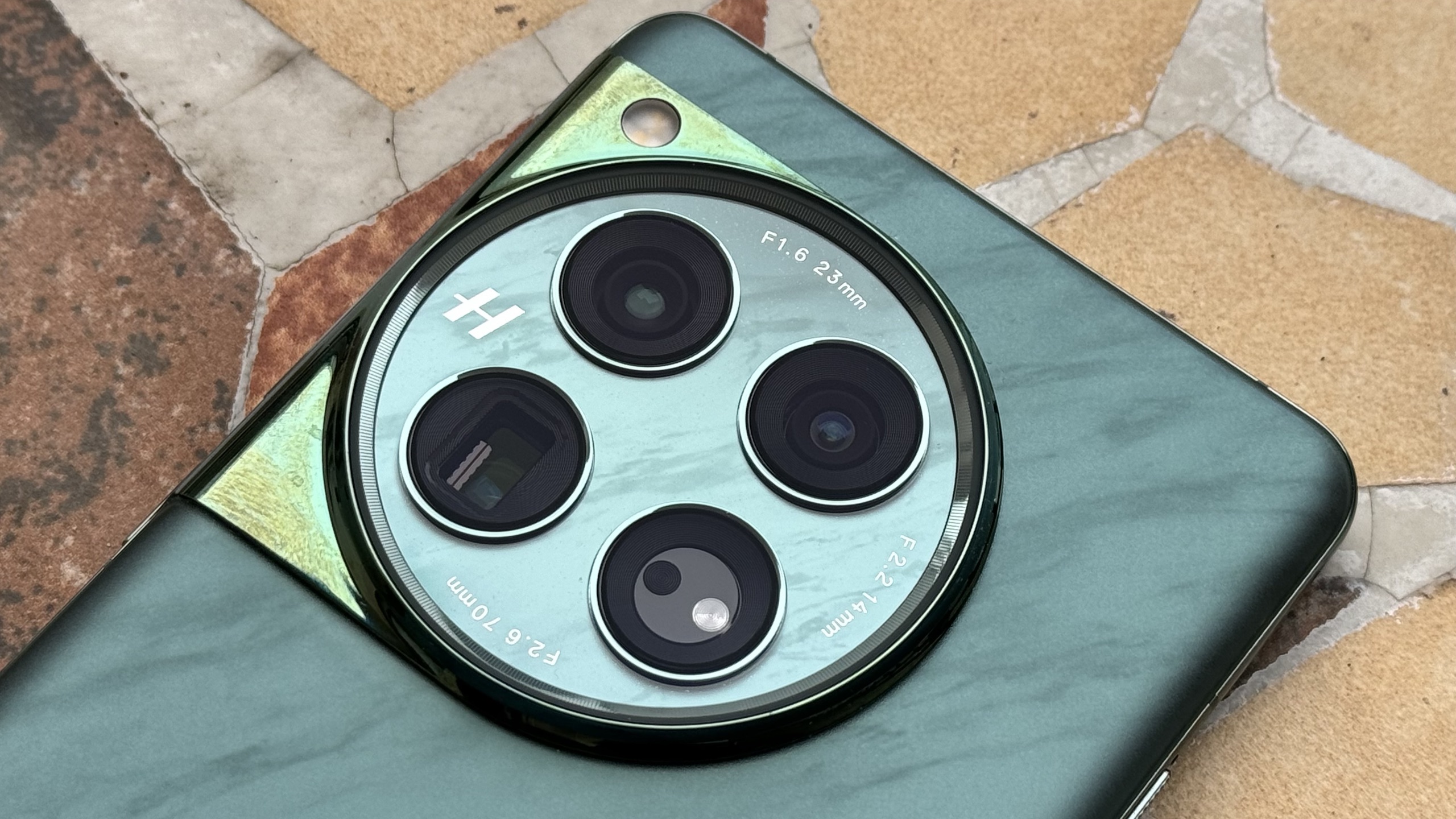
The mobile’s curved screen delivers a razor-sharp, high-resolution display with an almost velvety user experience. Add to that a hefty brightness of up to 1,600 nits, which in practice means that the screen can be used seamlessly outdoors, even if the sun is shining from a cloudless sky. In special situations, such as explosions or bright flashes in videos or games, the monitor even supports a maximum brightness of up to 4,500 nits. Don’t forget your sunglasses!
The refresh rate is adaptive up to 120 Hz, which in practice means that the screen frequency automatically adapts depending on what’s happening on the screen. The OnePlus 12 also supports Dolby Vision HDR, so you can watch films and series in Dolby Vision.
A very welcome new feature OnePlus calls ‘Aqua Touch’. In a rainy country, we all know how difficult it can be to operate your smartphone if the screen gets wet. The touch of your fingers on the screen is simply misinterpreted. But with the OnePlus 12, that problem is a thing of the past.
We tested the OnePlus 12 on a trip to San Francisco, where it rained most of the time. Still, using the phone outdoors for things like searching and navigating Google Maps was no problem. No matter how wet the screen got. In contrast, the other two mobiles we brought along, from Apple and Samsung respectively, were virtually unusable as soon as their screens got wet.
We don’t know exactly how Aqua Touch works. OnePlus hasn’t revealed it, but an educated guess is that it’s software rather than hardware. Whatever the reason, the feature works flawlessly. Sweet!
When it comes to the audio experience, OnePlus is once again the king of the mobile market. The phone is of course equipped with aptX HD from Qualcomm, which optimises the sound when streaming wirelessly via Bluetooth, and the integrated speakers have Dolby Atmos, so the sound is also crisp and detailed if you use the phone to listen to music, watch videos or play games without headphones.
Camera
The OnePlus 12 offers a real camera upgrade over its predecessor. Only the ultra-wide angle lens is the same.

The primary wide-angle camera is almost identical to the corresponding camera in the OnePlus Open, the Chinese company’s foldable smartphone from last autumn. It has 50 Mp and is based on Sony’s latest LYTIA-808 sensor (the OnePlus Open was equipped with the 48 Mp LYTIA-T808), which among other things uses Dual-Layer Transistor Pixel technology that optimises light collection by separating and stacking two layers of pixel transistors under the photodiodes, which should improve image quality in low light.
Last but not least, the OnePlus 12 has a new 64 Mp OmniVision OV64B telephoto lens with 3x true optical zoom plus 6x hybrid zoom.
Overall, the new camera performs well. We took a number of different test shots in different situations and overall the camera is very versatile and manages to produce detailed images across a wide range of focal lengths.
Different lighting conditions are also handled excellently, and both focus and sharpness are maintained even at the higher 6x zoom level. Colour reproduction and white balance management are also approved, and our test images also show that the OnePlus 12 handles image noise quite effectively.
Performance and features
The OnePlus 12 is one of the first smartphones we’ve tested with Qualcomm’s latest Snapdragon 8 Gen 3 processor. OnePlus promises near superpowers thanks to the new processor and a series of optimisations to Oxygen OS, which the manufacturer has dubbed the ‘Trinity Engine’. The idea is that various hardware components such as CPU, ROM and RAM will perform better thanks to better software integration.

In addition, the OnePlus 12 has been equipped with nothing less than the ‘Dual Cryo-velocity VC Cooling System’, a new solution for cooling the phone when gaming, which consists of a larger ‘vapor chamber’ than on previous models.
Unfortunately, none of this is something we noticed when we tested the OnePlus 12. In everyday use, it runs lightning fast, no doubt about it, but in benchmark tests, the results were a mixed bag.
With the OnePlus Open, the foldable format finally makes sense.
Roughly speaking, the benchmark tests that measure pure CPU performance (such as Geekbench 6 and PC Mark Work 3.0) showed an unsatisfactory result that was actually on par with its predecessor and even worse than the autumn OnePlus Open. However, the phone performed significantly better in the tests that measure graphical performance (e.g. AnTuTu 10, 3DMark and Geekbench 6 GPU). While there were clear improvements over previous models, the phone also got quite hot during these tests, as it did when we tested it with big games like Asphalt 9.
At no point did we see the OnePlus 12 stall or get so hot that it was uncomfortable to hold in our hands, but the trees don’t grow as high up in the sky as OnePlus had promised.
Battery life is acceptable, but not quite on par with its predecessor. On the other hand, the OnePlus 12 has finally got 50 watts of wireless charging, which is a good complement to the lightning-fast 100 watts SUPERVOOC charging, which takes just 26 minutes to charge the 5,400 mAh battery from 0 to 100 per cent.

Conclusion
OnePlus proved with the OnePlus 11 5G that there’s no need for a Pro model, and the OnePlus 12 confirms that impression, giving the user both in bag and baggage. The new flagship phone is slightly larger than its predecessor, but also offers a robust design, a mega-sized screen with QHD+ resolution and the brightest maximum brightness (4,500 nits) we’ve ever seen. Add to that the wildly practical ‘Aqua Touch’ feature, which means users can actually operate their smartphone even if it’s raining.
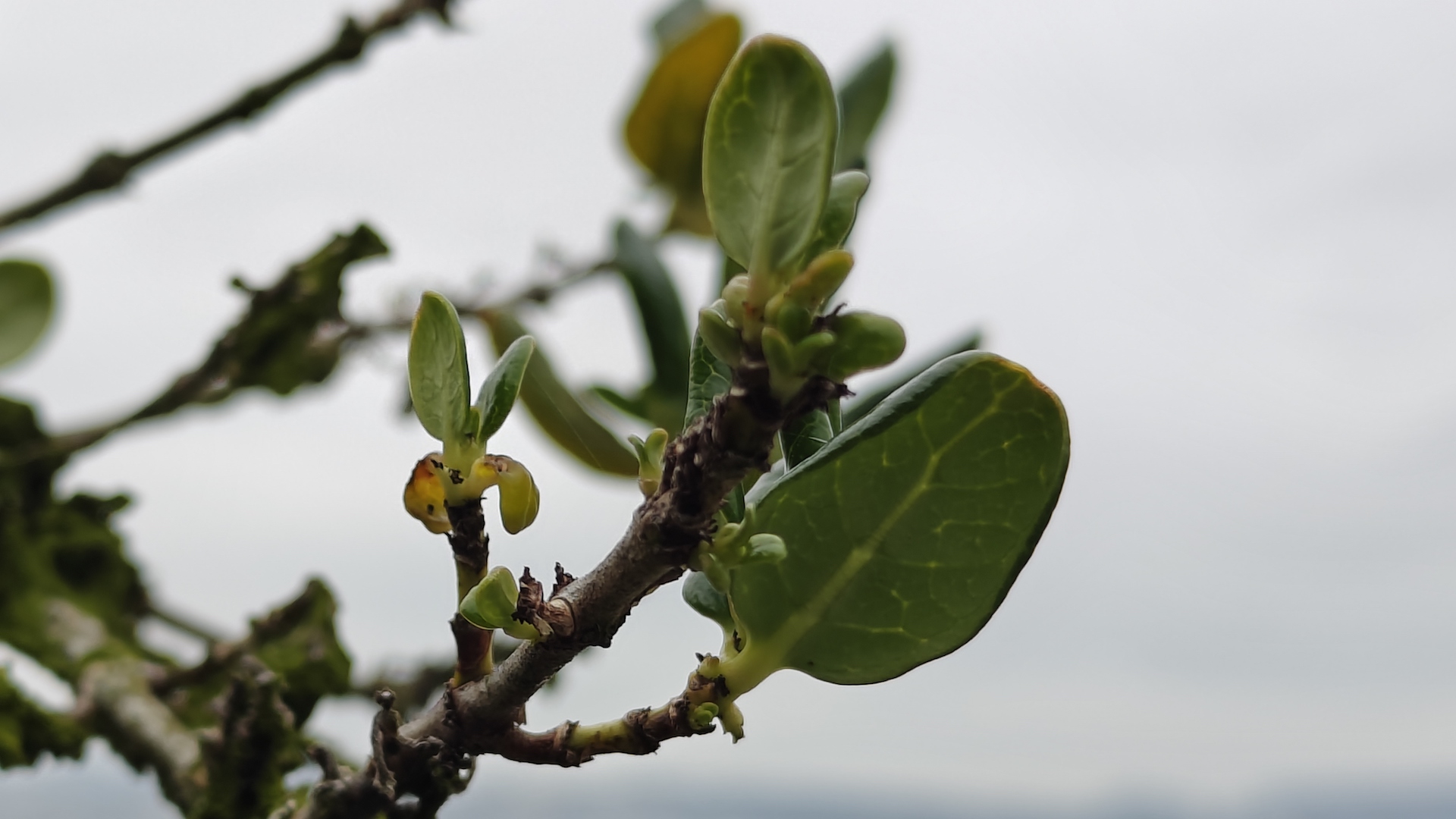
The camera also offers significant updates, including a significantly better zoom function, and the new Snapdragon 8 Gen 3 processor ensures better graphics performance.
On the other hand, the price has also increased. The OnePlus 12 costs around 10 per cent more than last year’s model, which means that it is now suddenly competing more directly with the most expensive models from Apple and Samsung, among others.
Its predecessor received the highest possible rating and our special recommendation, but the higher price and small bumps in the road in terms of performance mean that this year we can’t give quite as unreserved a recommendation. The OnePlus 12 is an excellent smartphone, but competition is fierce at the high end.

We think
Brilliantly good and very bright screen, improved camera, bigger battery, wireless charging and really good sound. And 'Aqua Touch' is a really welcome new feature. Must make do with IP65 certification. Despite optimised cooling, the phone still heats up quickly. Benchmark measurement of the processor shows results on par with the predecessor.
949 €
Specifications
- Operating system: Android 14 + OxygenOS 14
- Updates: 4 x Android + 5 years of security
- Display: 6.82″ Super AMOLED 120 Hz, QHD+ (3,168 x 1,440), 510 ppi
- Processor: Snapdragon 8 Gen 3
- Memory: 16 GB RAM / 512 GB storage (UFS 4.0)
- Camera: 50 Mp Sony LYT-808 f/1.6 m. OIS + 48 Mp Sony IMX581 114° f/2.2 ultra-wide angle + 64 Mp OmniVision OV64B f/2.6 telephoto w. OIS (primary) / 32 Mp f/2.4 m. EIS (front)
- Wireless: 5G, Wi-Fi 7, Bluetooth 5.4, NFC, GPS, GLONASS, Galileo, BeiDou
- Dimensions and weight: 164.3 x 75.8 x 9.15 mm / 220 g
- Battery: 5400 mAh, 100 W fast charging + 50 W wireless charging
- Web: oneplus.com
Benchmarks
- Geekbench 6: 972 (single-core), 4.804 (multi-core)
- Geekbench 6 GPU: 13.761
- GFXBench 5.0 T-Rex: 3.386 frames
- AITuTu: 1.242.261
- AnTuTu 10: 1.615.175
- 3DMark Wild Life Extreme: 4.916
- 3DMark Solar Bay unlimited: 8.723
- PCMark Work 3.0: 12.904
- Basemark Web 3.0: 407,11
- Battery: 9:28 hours
